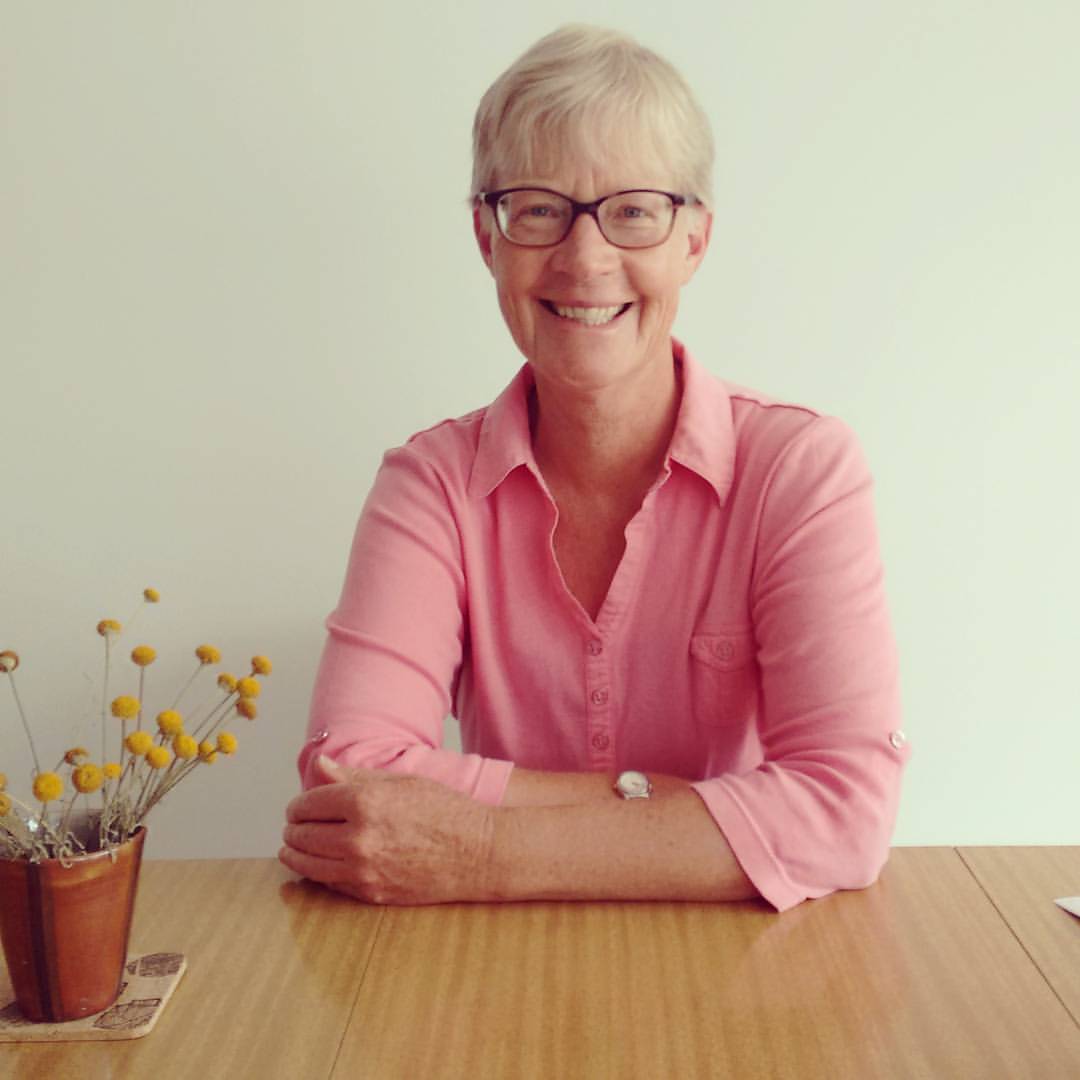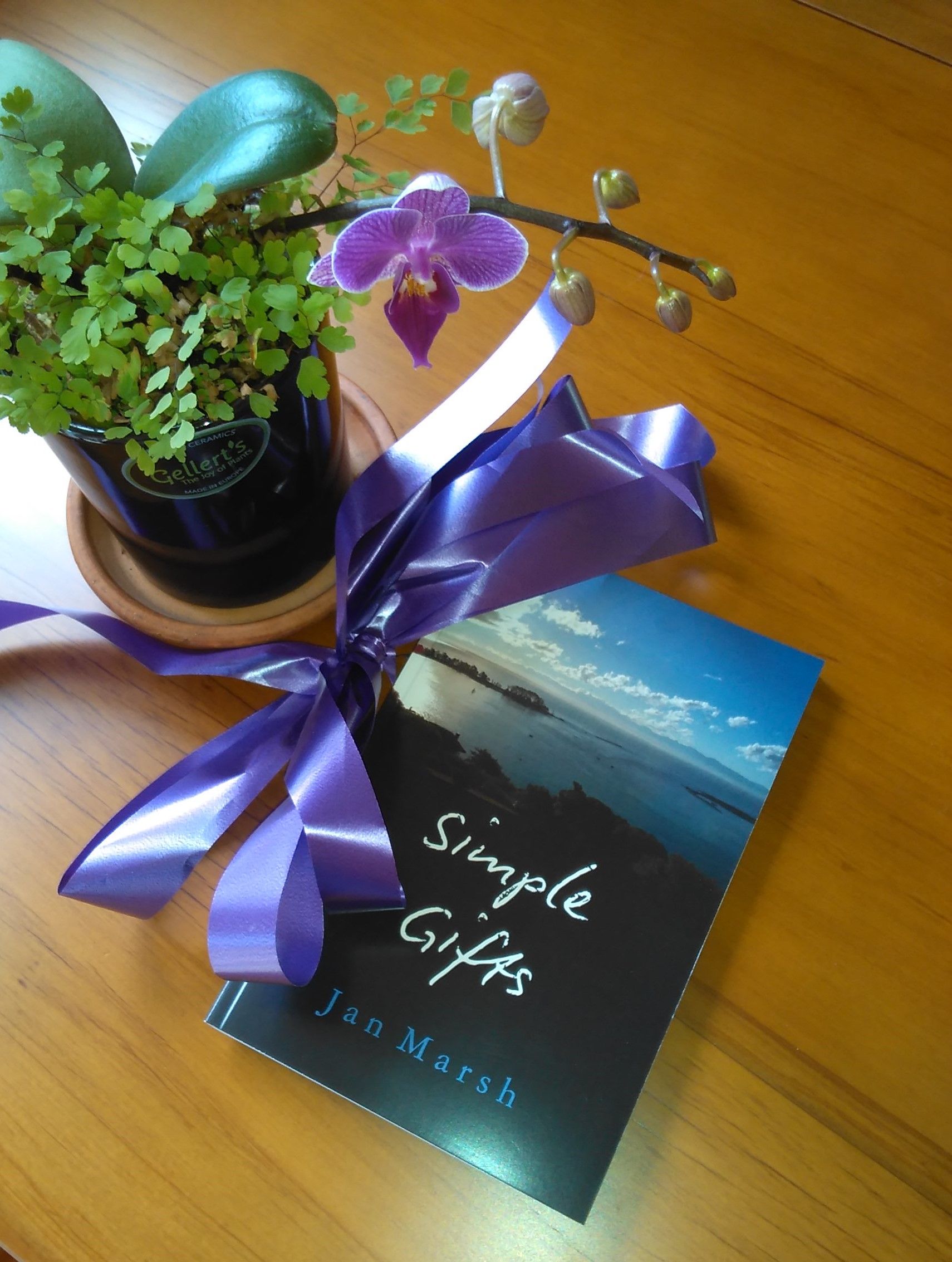
Jan Marsh
Thoughts, stories and ideas.

As I see it...
My book Simple Gifts is available as a reminder in troubled times to look for beauty and enjoyment, to be grateful for small pleasures.
In it I reflect on the many joys of a quiet life – the beauty of the environment, the pleasure of walking and swimming, family and friends – and on some underlying values and concerns.
This book is perfect for the busy reader. Take just a few minutes to dip in - it will offer images and ideas to ponder throughout the day.

When the stress just keeps on going
This morning I read that on the whole people are grumpier than they were three or four years ago. Workers who deal with customer complaints or have frontline roles in retail and hospitality report being abused frequently, often by customers whose demands are quite unreasonable.
I personally feel a little more easily hurt or provoked than I used to be. There's been a lot going on and we've needed to be resilient over and over so of course it all wears a bit thin.
But Monday is Run day and after a week of rain, I'm keen to get out. I'm going anyway. My blog post says more about it but I want to say to you: if you feel angry, don't bite someone's head off. Don't even try to be nice through gritted teeth. Get outside. Get moving. If you can't run, walk. Do Tai Chi in your garden. Hand jive in your chair. Moving makes all the difference.
Hope and Resilience
The Trans-Tasman bubble burst all too soon and after a fitful comeback it's off again. That's tough for those who are stuck on one side or the other and also for those - so many of us! - who have family members we can't be sure of seeing any time soon. And as Melbourne goes into its fifth lockdown I think of all the families there who are once again locked out of their routines and activities and good times with family and friends. Let's hope it's not too long this time.
Coping with setbacks draws heavily on our resources of hope and resilience. Repeated setbacks can deplete our reserves, so it's important to cultivate and nurture them them.
Hope: to trust with confident expectation of good (Wiktionary)
Nature provides an analogy as it so often does. Spring flowers are here, the seasons are changing as they will continue to do whether a particular day is cold or sunny. Hope enables us to look at the bigger picture and trust that the overall trend will be positive, or at least something we can cope with. Although we're often advised to stay in the moment, and that can be a good strategy to avoid catastrophising and worst case scenario thinking, hope is our time traveller. It draws on the past to anticipate the future. We can find hope by thinking back to occasions when we or others like us weathered the storm and came through. We can consider our skills in different situations in the past and see how they can be applied to the present in order to develop a positive future. We can place our trust in others who have proved reliable in the past, with the expectation of their wisdom or support.
Resilience: The mental ability to recover quickly from depression, illness or misfortune (Wiktionary)
Resilience is a kind of mental fitness. It's not something we can quickly pull out in response to hard times if we haven't been maintaining it throughout day to day life. It's the gap between stress and distress. In physical terms it's the ability of an object to resume its shape after being stretched or deformed; concepts of elasticity and adaptability apply in both the physical and mental sense.
What cultivates resilience? All those things that cultivate a good life. The basics of self-care are essential: we all lack resilience when we're tired or run down. It's easier to cope with hard times when we sleep well, eat healthy food, get regular exercise and take time out to rest and reflect. A regular time to sit quietly with our thoughts and to listen for the voice within can help us to regain our equilibrium and find a way forward.
Connection with others, particularly those in our families and communities, is one part of our context. The other is connecting with Nature. Increasingly it is being shown that time outdoors among plants and animals is good for our sense of well-being – something many of us knew intuitively. Time in the hills, by water such as the ocean or a river or in the forest can be restorative and settling, letting us return to our lives refreshed. When the bigger scale of the natural world can't be reached, time in a garden or park, visiting a favourite tree, watching the birds or playing with a pet can be beneficial.
We all have different sources of strength and well-being. What gives you hope? What sustains your resilience? Journal some thoughts or make cue cards for your wallet or a small poster for the fridge so that you have the reminders ready to hand when times are hard.
A new normal?
As we start returning to work and school, can come out to have a coffee, go to the gym or pool, travel to visit other parts of the country, what will we want to keep in place?
Many people have noticed the positive aspects of the past few weeks: time with family, noticing the birds and the clean air, getting regular exercise. What will you keep in place as we move on? It can be helpful to think in terms of your values and consider how to incorporate them into your life as we all get busier.
Some will be in worse situations: perhaps you've lost your job, had family and financial stress, lost a loved one and not been able to grieve in the usual way. Take stock. Allow yourself time to notice and feel your reactions. Talk to someone you trust or seek help from a psychologist or counsellor. The Healthline number for free support is 1737.
Supporting your mental well-being during the covid crisis
Here are some sources of information and online tools to help you feel mentally well and get through.
Information
- Getting Through Together is a mental well-being campaign focused on things we can all do to maintain our mental health and wellbeing during the COVID-19 pandemic (All Right? and the Mental Health Foundation)
- Looking after mental health and wellbeing during COVID-19 advice and information, and useful top tips to get through (Mental Health Foundation)
- Stories of people’s journeys to wellness and ideas to help you find your own way to better wellbeing (Depression.org.nz)
Self-help tools
- Melon is an app with a health journal, resources and self-awareness tools to help you manage your emotional wellbeing. You can also join their online community to connect with and support others, and watch daily webinars about health and wellbeing (Melon Health)
- Mentemia is an app that you can use to monitor, manage and improve your mental wellbeing by setting daily goals and tracking your progress (Mentemia)
- Staying on Track is an e-therapy course that teaches you practical strategies to cope with the stress and disruption of day-to-day life (Just a Thought)
- Working through depression is a personalised online programme that focuses on positivity, lifestyle changes and problem solving (The Journal at Depression.org.nz)
- Working through problems with Aunty Dee is a tool to work through problems, generate ideas and find a solution (Le Va)
Self-help tools for young people
- Feeling down, worried or stressed (SPARX)
- Learn more about mental health issues (Mental Wealth)
- Recognising and understanding depression and anxiety (The Lowdown)
Concerned about your substance use and/or gambling?
During this time people may be looking to familiar habits or seeking out new ways to cope with feelings and situations. While alcohol or other drug (substance) use and / or gambling may seem like ways to cope, these behaviours can negatively impact many areas of our lives including our health, wairua (spirit), hinengaro (mind), relationships and overall wellbeing.
If you, or those around you, are concerned about your substance use and/or gambling, there are some great resources to help you identify if you need some extra support:
- Is your drinking ok? (Health Promotion Agency)
- Test your drug taking (Alcohol Drug Helpline)
- Test your gambling (Choice Not Chance)
(from NZ Ministry of Health Website www.health.govt.nz)
These are strange times and we need to be taking care of ourselves and those we love.
Here are a few tips from me for well-being at home.
1. Eat healthy food.
We are all stressed and want to stay well. Giver yourself the best shot at this by eating your vegetables, having three meals a day, drinking plenty of water and snacking on nuts or fruit. Well, fast food is out anyway...
2. Get some exercise.
There are yoga and gym workouts online, we are still allowed to walk and bike, kick a ball around the yard with the kids or pets, dance in your lounge like nobody's watching (yep, they aren't) . No excuse for emerging from this out of condition and overweight.
3. Do a short meditation or breathing exercise, at least daily.
There are apps and websites for this (Headspace, Calm.com). You can just sit quietly paying attention to your breath and listening to the sounds around you, or you can put on some calming music. We all feel scared of the unknown and are missing our usual routine, so staying calm is going to be really vital. Notice the present moment and don't let anxiety present you with a lot of worst case scenarios.
4. Keep in touch with friends and family.
Use the phone or whatever method or device works for you. Keep in touch but don't let it go into long angsty conversations about what could go wrong. Make sure you have a laugh and talk about other things than the virus. Pace yourself and don't hesitate to turn off the phone to do other things.
5. Limit your news consumption
Stay informed but don't get overwhelmed. Turn off media and focus on the present moment, checking in at particular times. Take time at the end of the day to wind down with a book or some music, a (non-apocalyptic) movie or a conversation with someone you love.
6. Find meaning
We all need to feel useful. Have some personal goals, write them down and check them off. Make a to do list for some chores at home. Look for online opportunities to volunteer your time or donate where you can. Take care of a friend or neighbour who needs a call or some shopping done. If you are caring for children at home, that's major, give yourself a pat on the back.
If you have a faith or a religious practice, keep it up even though you can't attend any groups at present. Some groups are having success with online video meetings and worship.
Remind yourself of your values and keep them intact over this time. We may not have a map for what is happening in the world right now, but our values are our personal map.
7. Have fun!
Sing, dance, look for jokes or comedy. Use your five senses to have enjoyable experiences: take a bubble bath, pick some scented flowers from your garden, do an art tour online, make some tasty treats, listen to music.
Kia kaha. Stay safe.